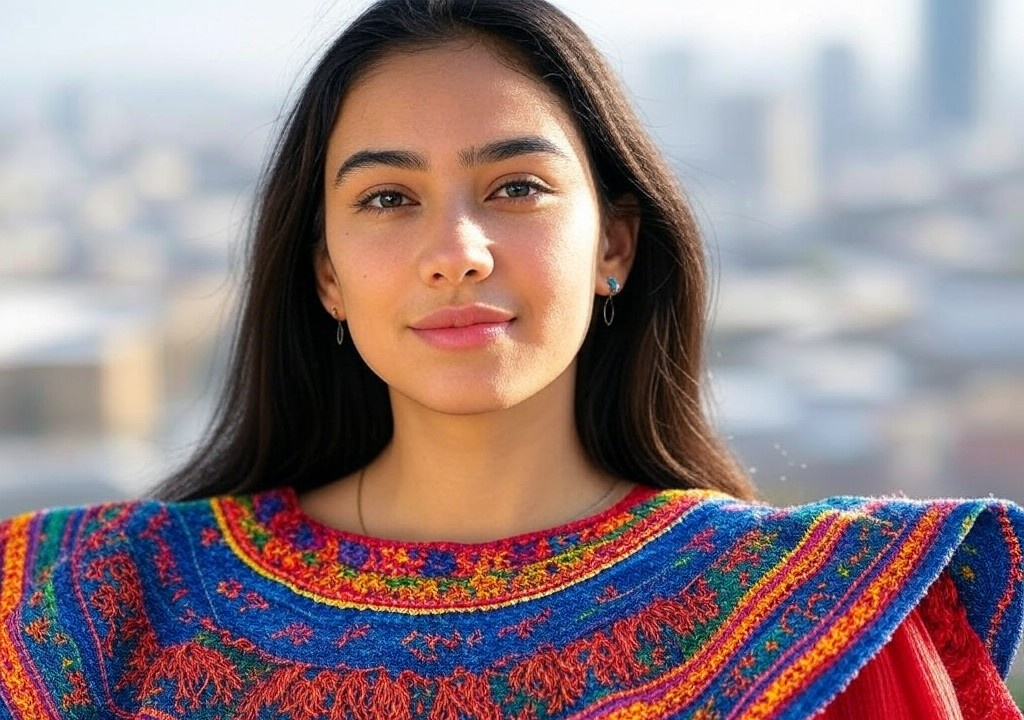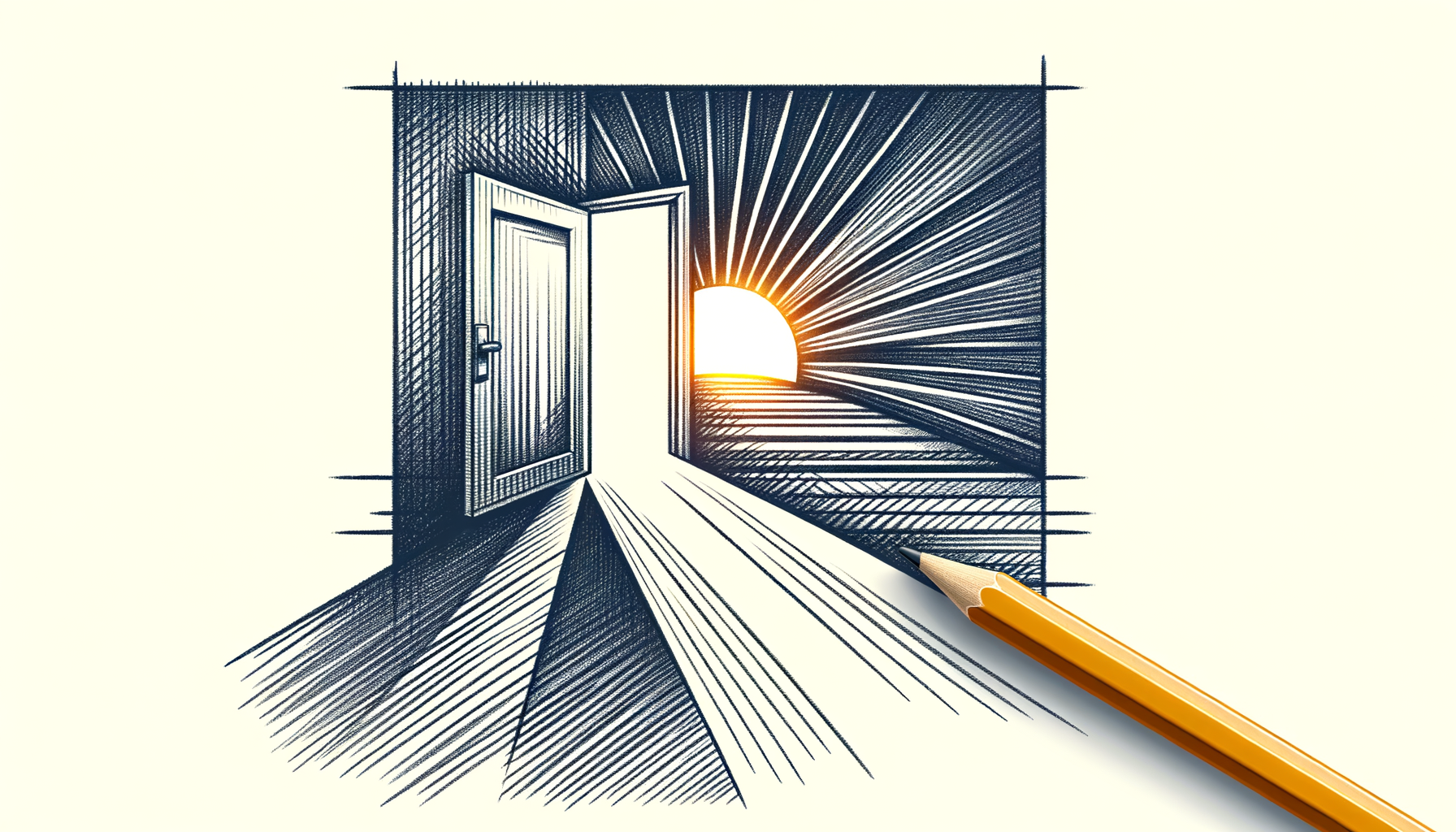I used to think I was good at blending in. Chalk it up to years spent as the “quiet observer” in my sprawling Chilean family, where every Sunday turned into a fiesta of competing voices, guitars strumming, and empanada dough flying. I let my siblings hog the limelight while I busied myself with books, soaking up the wisdom of Neruda and Mistral. It wasn’t shyness—I could hold my own—but there was something oddly comforting about feeling invisible in a loud world. I was content being the wallpaper—until the day I wasn’t.
The Moment That Shook My Camouflage
It happened during my master’s program in Spain. Picture this: Madrid in spring, a café bustling with espresso machines and the chatter of students from every corner of the globe. I was sitting in a seminar circle—one of those dreaded group discussions where you’re expected to sound brilliant on command. The topic that day? How art reflects identity. As others spoke, my hands fidgeted with the corner of my notebook. I scribbled notes, not daring to lift my head.
Then the professor (a Cantabrian man who struck fear into all of us with his withering stare) paused mid-discussion, pointed at me, and asked, “What does identity mean to you, Carmen?”
You’d think panic would have set in. Nope—what I felt in that moment wasn’t fear. It was pure, unfiltered terror. But then, I opened my mouth and started talking, not from theory, but from lived experience. I spoke about growing up in Santiago, about the way street murals became a visual history of my neighborhood. I talked about how Violeta Parra’s lyrics still made me cry because she understood love and loss the way my abuela did. I mentioned how moving to Madrid had made me painfully aware of how often people reduced me to stereotypes, assuming “Latina” meant fiery temper and salsa dancer (for the record, I trip over my own feet on the dance floor).
The room went quiet. Not the uncomfortable kind of quiet, but the lean-in-and-listen kind. It wasn’t just my words—it was the way their faces softened as they heard me. For the first time, I felt seen. Not as the girl who blended into the scenery, but as someone whose perspective mattered.
Why Being Seen Feels So Unnervingly Big
Let’s get one thing straight: being “seen” isn’t about someone paying attention to the obvious, like the fact you’re wearing a bold red dress or have a killer smile. It’s about recognition. It’s someone looking at the messy, unpolished parts of you and saying, “That, right there, is worth something.”
But being known isn’t as straightforward as it seems—it’s also unsettling. After all, when you’re truly visible, your flaws are out there too. It’s like handing over your diary and saying, “Here, read my notes on how my anxiety talks me out of texting first.” Vulnerability comes with big stakes. But without it, the chance to connect—deeply, genuinely—slips through your fingers.
The Risk of Living in Disguise
For years, I avoided letting myself be seen. I was the queen of what I’ll call “social camouflage”—laughing at jokes I didn’t really find funny, agreeing to plans I secretly found exhausting, and hiding parts of myself I deemed “too much.” (Wanting to discuss poetic metaphors over brunch? Definitely too much.)
But let me tell you, hiding isn’t as safe as it feels. Sure, it keeps rejection at bay, but it also keeps people at a distance. It’s the difference between living life like a cozy, predictable rom-com and an unpredictable, passion-filled drama. One keeps you comfortable; the other makes your heart race.
There’s a phrase I once stumbled across in the pages of Isabel Allende: “You only have what you give.” The same goes for emotional visibility. If you don’t allow people to see the full, unfiltered you, how will they ever decide if they want to stay? And yes, this applies to every type of bond—friendships, family dynamics, romantic flings.
Steps to Take Off Your Social Cloak
So, how do you turn off your need to hide and start letting people see you, wrinkles (literal and metaphorical) and all? Here’s what I’ve learned, both from that day in Madrid and the years that followed:
-
Start Small, Get Real
You don’t need to bare your soul to the next stranger who asks how you are. Start with little truths: share what you actually thought of the movie, reveal a story about your childhood, admit you don’t love pineapple on pizza even if it’s a dating dealbreaker for the other person. (Some hills, my friends, are worth dying on.) -
Find Your Mirror People
These are the people who reflect the most authentic version of you, who support you when you’re raw and real. Pro tip: They won’t flinch when you talk about your fears, dreams, or the bizarre habit you have of sniffing books before reading them. (No? Just me?) -
Say Yes to the Awkward Moments
Vulnerability is downright awkward. Think sweaty palms, cracking voice, the occasional too-long pause. But here’s the kicker: the stuff you’re most tempted to gloss over is often the very thing that creates meaningful connection. Lean into the awkward. It’s where the magic hides. -
Do a Self-Audit
Ask yourself: How much of the person I show the world is really me? What am I holding back out of fear or habit? (Here’s where a journal or an honest friend comes in handy.) -
Focus on the Present
Being seen only happens when you’re fully in the moment. When your mind wanders to whether you said the “right” thing or whether you look cool, you’re not present anymore. Embrace the moment, imperfections and all.
The Lasting Impact of Being Seen
After that seminar in Madrid, everything shifted. It wasn’t like I suddenly became the loudest voice in any room (hard pass—I’ll leave that to my extroverted siblings). But I started writing more frankly about the tensions of growing up in a place where traditions run deep while the world pulls you toward modernity. I shared stories about heartbreaks that once felt too personal to voice. And, because life loves symmetry, a few years later, I wrote my first piece of fiction—a story about someone who felt invisible until, well, she didn’t.
That moment in Madrid wasn’t just a one-time thing. It was the beginning of a habit, a commitment to show up in the world as myself, untamed hair and all. And guess what? The connections I’ve built since then feel more solid, more textured, and yes, more joyful. There’s beauty in letting go of the armor.
So, if you’re reading this, wondering if your quiet self will ever be recognized, trust me on this: your time will come. Someone will pause, really look at you, and see everything you’ve been keeping hidden. And it’ll feel equal parts terrifying and wonderful.
Let them see you. You may just see yourself more clearly, too.




















